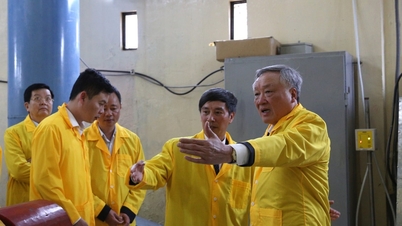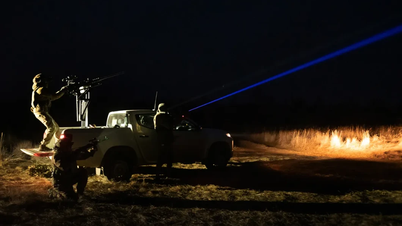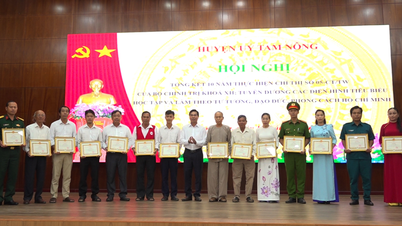South African researchers have successfully injected low doses of radioactive isotopes into 20 live rhinos in a six-month study to deter poaching.
This is the announcement of researchers participating in the Rhisotope project, June 25.
The aim of the Rhisotope project is to use nuclear technology to introduce small, measurable amounts of radioactive isotopes into rhino horns so that they can be detected by radiation monitors at borders, seaports, airports and checkpoints, said James Larkin, a scientist at the Department of Medical Physics and Radiation at the University of the Witwatersrand in South Africa.
Starting on June 24, scientist Larkin and a team of the world's leading experts in rhino conservation, sedated 20 rhinos and drilled a small hole in their horns to insert non-toxic radioactive isotopes.
Researchers will now closely monitor the rhinos 24/7 for the next six months to determine the feasibility of this approach.
According to researcher Larkin, this method does not harm animals while helping to prevent rhino poaching.
Veterinarians closely monitor each dose of radioactive isotope administered and take special care to prevent any harm to the animals.
After months of research and testing, researchers ensured that the introduced radioactive isotopes did not pose any health or other risks to the animals or their caretakers.
More than 11,000 radiation monitors will be installed at airports, ports and border gates to implement this project.
Scientist Larkin emphasized that the purpose of the project is to reduce the value of rhino horn for buyers or sellers, and at the same time, make it easier for authorities to detect when rhino horn is smuggled across borders.
Meanwhile, scientist Lynn Morris, Deputy Director of Research and Innovation at the University of the Witwatersrand, said the research was carried out in the hope of making a real difference, thereby preventing the risk of extinction of rare wildlife species, especially in South Africa as well as across the continent.
According to the researchers, the development and application of nuclear technology by the Rhisotope project could help prevent poaching, increase the ability to detect trafficked rhino horn, prosecute, detect rhino horn trafficking routes and disrupt rhino horn markets.
If successful, the project will be expanded to include elephants, pangolins and other animals and plants.
Source: https://nhandan.vn/nam-phi-thu-nghiem-cong-nghe-hat-nhan-ngan-chan-nan-san-trom-te-giac-post816318.html


![[Photo] Ready for the top competitions of Vietnamese table tennis](https://vphoto.vietnam.vn/thumb/1200x675/vietnam/resource/IMAGE/2025/5/18/9c547c497c5a4ade8f98c8e7d44f5a41)



![[Photo] Many young people patiently lined up under the hot sun to receive a special supplement from Nhan Dan Newspaper.](https://vphoto.vietnam.vn/thumb/1200x675/vietnam/resource/IMAGE/2025/5/18/6f19d322f9364f0ebb6fbfe9377842d3)
























![[Photo] Many young people patiently lined up under the hot sun to receive a special supplement from Nhan Dan Newspaper.](https://vphoto.vietnam.vn/thumb/402x226/vietnam/resource/IMAGE/2025/5/18/6f19d322f9364f0ebb6fbfe9377842d3)



![[Photo] General Secretary To Lam visits exhibition of achievements in private economic development](https://vphoto.vietnam.vn/thumb/1200x675/vietnam/resource/IMAGE/2025/5/18/1809dc545f214a86911fe2d2d0fde2e8)






























































Comment (0)